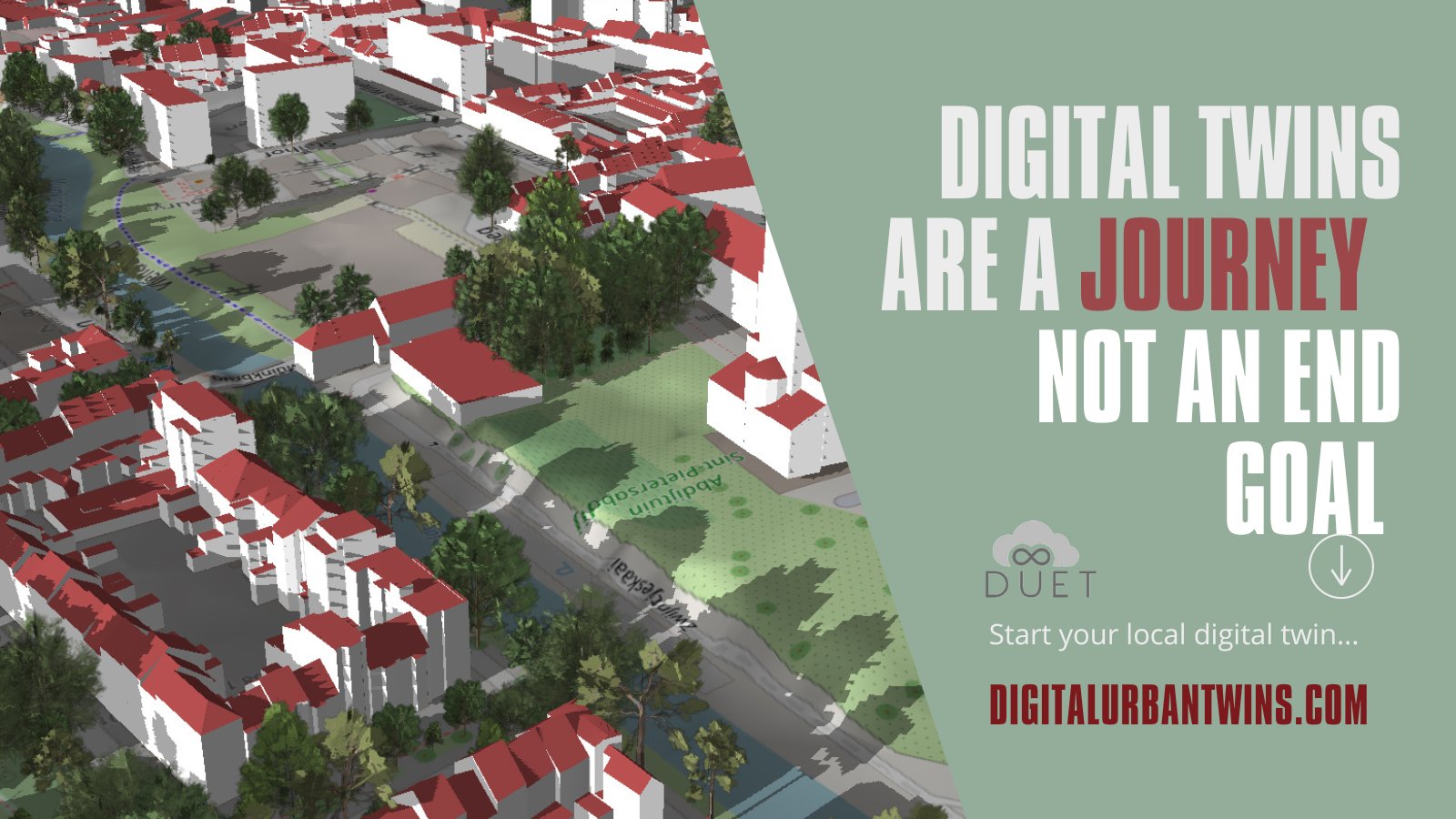Local Digital Twins - A journey not an end goal!
Digital twins are digital replicas of physical objects or systems. They can be used to simulate the behaviour and performance of their physical counterparts. These digital replicas are created using data from sensors and other sources, and they can be updated in real time as the physical object or system changes.
Why Digital Twins for cities?
Digital twins can provide a more accurate and detailed understanding of a city's systems and infrastructure. This can enable more effective planning and decision-making, as well as more efficient and responsive operations.
For example, a digital twin of a city's transportation systems could help planners understand the flow of traffic in real time and identify bottlenecks and potential congestion issues. This could be used to develop more effective traffic management strategies and improve the overall efficiency of the transportation network. A digital twin could help cities and public administrators to better understand and manage the impacts of natural disasters and other emergencies.
Time for Local Digital Twins
DUET (Digital Urban European Twins), a European innovation initiative, adapted the concept of digital twins from an industrial setting to the public sector domain, creating a technology called Local Digital Twins (LDT), also known as urban digital twins. They have recently released a Policy Brief “exploring the potential of local digital twins for data-support decision-making” particularly in a post-pandemic world where cities are under pressure to deliver more and optimised services while also reducing budget expenditure.
“Replicating city's physical assets, processes and systems using data, analytics and machine learning, DUET created virtual replicas of the cities of Athens, Pilsen and the Region of Flanders that update and change automatically in real-time as the physical cities themselves change. Through a 2D and 3D interface policymakers, city managers and stakeholders were able to simulate, model and explore the predicted impact of different policy options on their city, before making better-informed decisions” reads the policy brief.
“Local Digital Twins are one of the focus areas of living-in.eu since the beginning, and we are cooperating closely with the DUET project and following its work.
The policy brief also gives recommendations for the implementation of the Local Digital Twins model, policy recommendations and hints on how cities can benefit from its implementation with examples from Athens and Pilsen, both signatories to living-in.eu and members of Eurocities, as well as the region of Flanders, Belgium.
Improving city administration
The adoption of Local Digital Twins is expected to accelerate in the coming years. The Digital Europe Programme will support that through funding for the development of a Local Digital Twin toolbox, which all European communities could use when developing local digital twins. A concept that may now appear as too high-tech and distant from our current issues will become a common practice in the next decades. Living-in.eu will help cities be up-to-date and be the first ones to hear about funding opportunities and shared knowledge.








